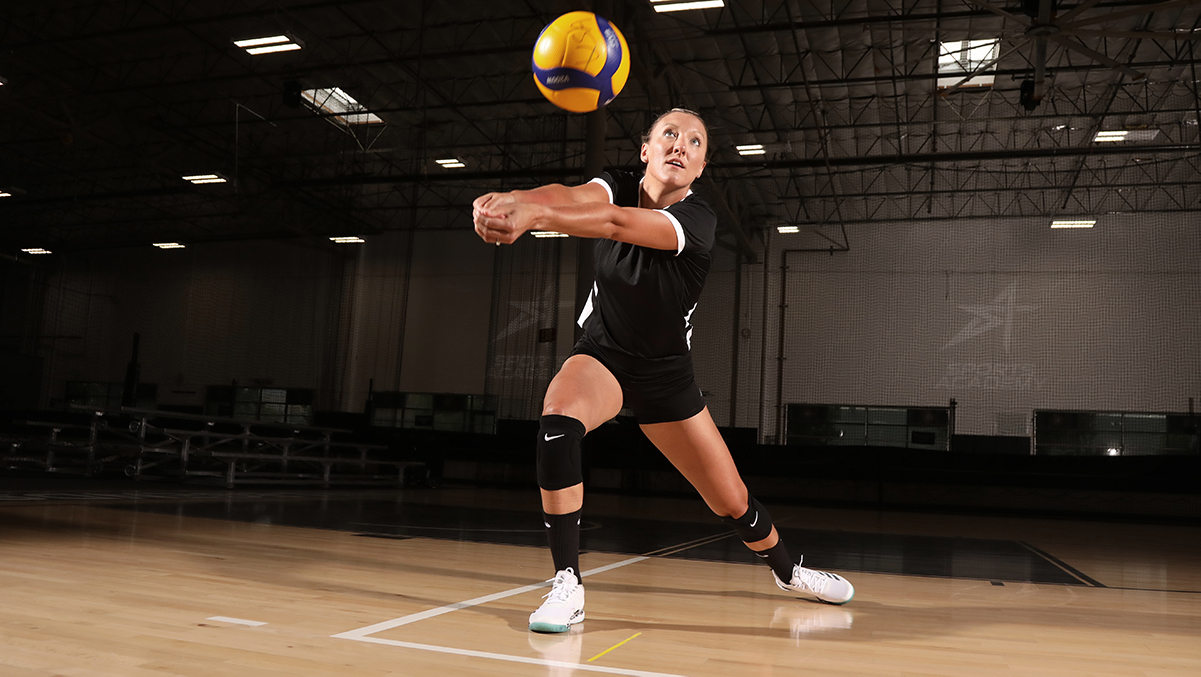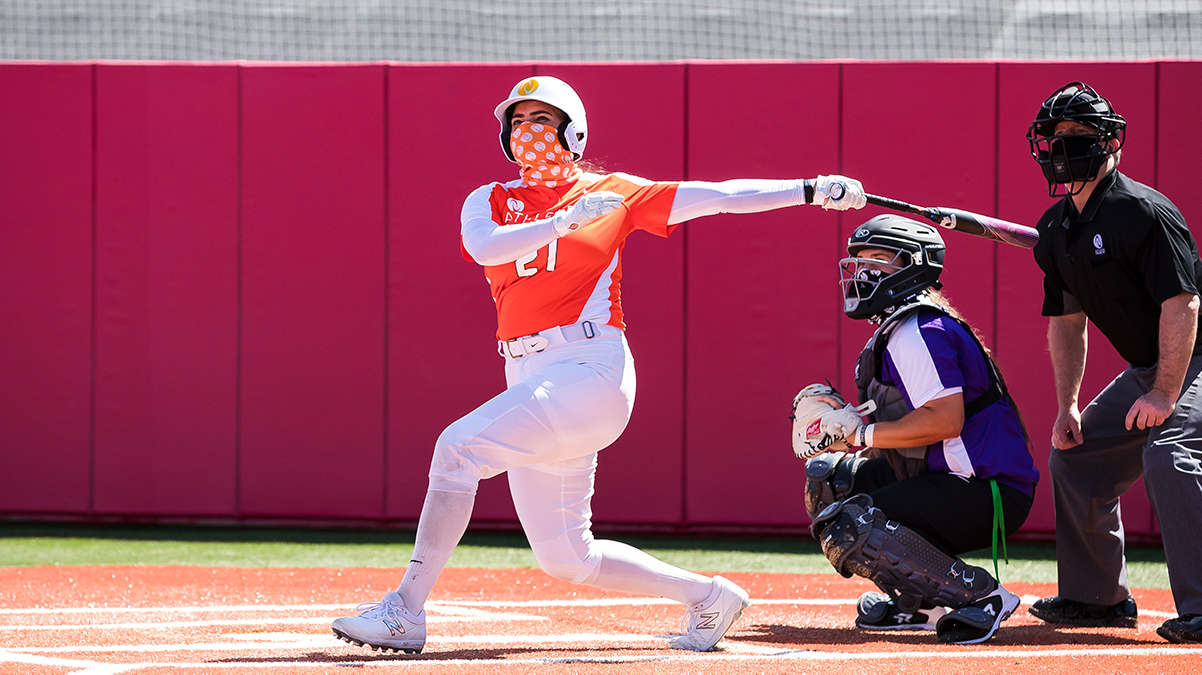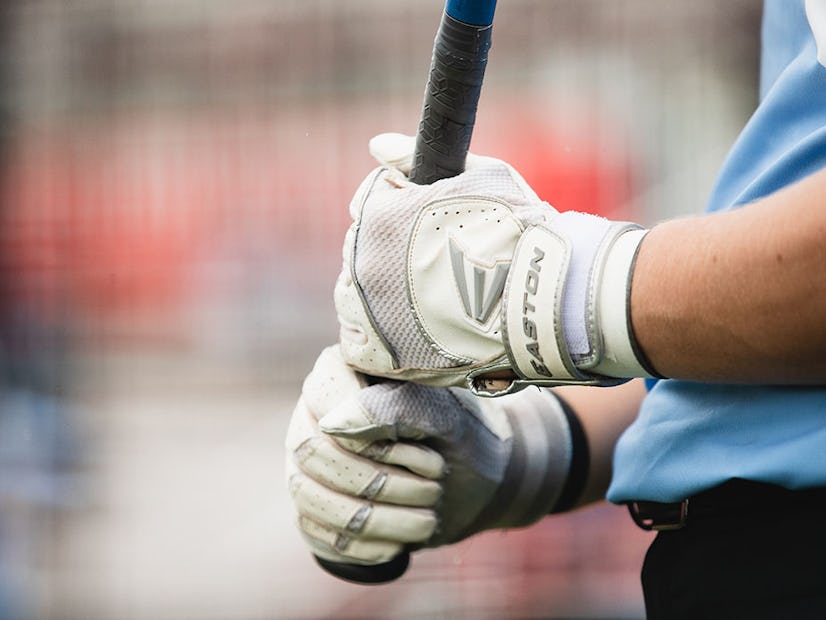
THE CREATION OF ATHLETES UNLIMITED
From a Christmas Eve dream to reality
Two years ago, on Christmas Eve 2018, two friends met for breakfast amidst the craziness that is New York City during the holidays and, before paying their bill and heading their separate ways into the wave of merriment that engulfs the city in late December, breathed life into what would grow to become Athletes Unlimited.
It was just a spark of an idea then, a concept really. Those friends, Jonathan Soros and Jon Patricof, were dreaming big.
“We kind of left that Christmas Eve breakfast and I thought that it was a tremendously exciting idea but very difficult to accomplish,” Patricof said.
Their big idea? Both wanted to get innovative about professional sports leagues. Sports are an important part of society, they posited, and they felt we could be approaching them better. They were committed to reimagining not just the professional athlete experience but also the fan journey, wanting to create something less reliant on geography and more empowering to female athletes and fans, who they felt had been underserved in the market.
“Sports is one of these cultural touchstones that engages a lot of people,” Soros said. “What if we built a sports league where there were no fixed teams and no fixed cities, acted on the belief that there are tailwinds in the women’s sports arena, and did this completely, radically new thing?”
To hear such dreams spoken out loud on that holiday morning in the heart of New York might have sounded crazy. Create a new sports league? Eschew the traditional city-based model? But as shoppers scurried by hunting for last minute presents and tourists flocked to see the holiday lights, Soros and Patricof hit the pavement to take action on their dream. As the calendar turned to another year they had already set in motion plans that would lead them toward the very people they would need to turn their dreams into reality — the athletes themselves.

Creating a path for the future
Athletes are used to making sacrifices to follow their passion. To become the best at any sport requires commitment to a training and competition schedule that often pulls them away from their family, friends, hometown and hobbies.
And that’s if you’re one of the lucky athletes whose sport of choice gets a lot of attention in North America.
Happen to be a two-time Olympic medalist in volleyball? You might just find yourself saying goodbye to a lot more — like, perhaps, even your country. Just ask Jordan Larson, who has spent the last 13 years of her career living abroad and playing professional volleyball.
“When you’re not playing 6-on-6 at a consistent, high level all year round it’s tough to come into the gym and jump in with girls who have been doing that,” said Larson, who has lived in Puerto Rico, Russia, Turkey and China to play volleyball.
For athletes like Larson, few opportunities exist on home soil to become the best in their sport — and to make money doing it. For her, following her dream has meant missing out on pivotal moments at home.
“One of my friends got married while I was gone and I couldn’t be there,” she said. “I’ve missed graduations. My parents are getting older before my eyes.”
The constant cycle of FaceTimed Thanksgiving dinners and the first birthday parties of friend’s children wears on athletes like Larson who feel they are missing out on moments with loved ones they will never be able to get back. “Any holiday that you’re away, it’s hard, challenging,” she said.
She’s watched as one by one teammates and competitors who are still in their athletic prime have retired from sports, simply to live closer to family.
“It just breaks my heart that people still have the passion for it but don’t want to go overseas or be away,” Larson said. “We leave so much talent on the table.”
In the midst of wrestling with her own competing desires in this arena, Larson encountered Patricof and Soros, who had been consistently working the idea of Athletes Unlimited since their Christmas Eve breakfast.
“We flew out to Anaheim in September,” Patricof said. “That’s where the national team practices and plays. We went up into the coaches room and the players had come off of their practice and we got a chance to meet six of the national team players, including Jordan Larson. Some were sitting on the floor, some sitting on couches, and that was the first time we got to share with them.”
Larson also remembers the meeting well.
“They started talking about the different rules and what it would be — it kind of seemed very not normal for us,” she said.
But as she contemplated their proposal, something in her sparked. “There were so many times people have tried to start a league in the States for volleyball. It’s never worked,” she said. “Why does it have to be played a certain way? Who’s to say that it can’t be played another way?”
The more she talked about the idea with other athletes the more her mind began to change. “This is great,” she remembers thinking to herself eventually.
As Larson worked to recruit more volleyball players to join Athletes Unlimited what was once an offbeat idea all of a sudden started to sound realistic, even preferable.
“It’s not just being a part of a volleyball team,” Larson said. “It’s being part of this organization and the bigger team. Just feeling like you’re a part of it from the beginning, taking some ownership of it makes it even more cool.”
Puzzle pieces fit into place
In the time between December, when Patricof and Soros had hatched their plan, and September, when they had pitched it to the volleyball players, they had been hard at work trying to determine the best way to move forward — and it wasn’t just volleyball they were interested in.
The two had brainstormed a number of different sports they felt might be a good match for an innovative competition and scoring format. Among them, softball.
One date stands out: Monday, July 29, almost six months to the day since they had begun their journey. That’s the day Cheri Kempf came to their offices in New York City. As the Commissioner of the National Pro Fastpitch (NPF) league, Kempf had a well-earned reputation of being on the cutting edge of all things women’s fastpitch. If Athletes Unlimited was to include softball, Kempf would be the woman to make it happen.
“I went to New York City to pitch them on involvement in the NPF,” Kempf said. “I took a presentation for that, that’s what I went there to talk about.”
Patricof and Soros had other hopes — they turned the tables and pitched her on the concept of Athletes Unlimited.
It struck a chord with Kempf, who had been feeling that women-centric sports content was lacking.
“I felt like in the sports world you started to see a presence of girls and women on television in ads,” she said. “You could feel it and you could see it and there were these touching commercials — a dad and daughter playing catch or shooting baskets, but the part that was hard to take was that ad would be sitting inside a men’s sport. They were starting to do things ‘at us’ but still not doing things ‘with us,’ and we needed ‘with us’ to change it.”
She felt Athletes Unlimited was a “with us” initiative. “To have this experience where the players are right in the middle of the relevance and the concern of every aspect of the business was a very different structure for me,” she said. “I have completely enjoyed the player executive committee and that interaction and that structure.”
Before Kempf left their offices on that Monday, she had already voiced her support of Athletes Unlimited.
“There were so many of those amazing moments throughout this process,” Patricof said. “But I think when Cheri Kempf decided that she was going to explore this with us and work with us, that felt like an important moment.”
Kempf’s next move was to begin recruiting players who she felt would be a good match for the league.

“I was sitting in Indiana and finishing my Master’s degree and got a call from Cheri Kempf,” said Gwen Svekis, a former All-American catcher for the Oregon Ducks. Svekis remembers Kempf phrasing the idea as an “interesting opportunity.” Before she knew it, Svekis was on a plane to New York City to meet with three other athletes in the large conference room overlooking Central Park where Soros and Patricof had been diligently forging ahead with their plans.
It was the first time they had flown athletes in to talk about really doing this — no more presentations, no more convincing, but figuring out how to actually make something like Athletes Unlimited happen.
Svekis was focused on answering her initial question: “What does this look like in real life and how can we make this come alive?”
It was a passion echoed by the other athletes in the room, and one that made an instant and major impression on Soros and Patricof. “They were terrific. They were immediately terrific. Obviously terrific.”
The answer to making the concept come alive would prove to be a massive amount of collaboration between all levels of the organization, a never-before-seen partnership between athletes and a league. “We’ve been involved in almost every conversation along the way — we work through policies and procedures, uniforms, sponsorship deals, TV deals, social media output,” Svekis said.
Every part of Athletes Unlimited has been shaped by the athletes themselves from that meeting onward.
Acting on values and purpose
While the origins of Athletes Unlimited were spurred on the strength of big dreams and a passion for change, the fact that it’s been able to inspire goodwill from so many stakeholders can be largely attributed to the passion and values that have been instilled in the organization from the beginning.
“I think values permeate every aspect of the organization,” said Vivien Labaton, who worked with Soros and Patricof from the beginning to breathe life into Athletes Unlimited. “Everything from centering women athletes, lifting them up, giving them a platform and the attention they deserve for their athletic excellence–that is a huge statement in itself.”
But the athletes aren’t the only stakeholders Labaton sees as integral to the league’s innate sense of mission. “If you think about all the fans that have been underserved by the focus on traditional sports, which tend to be male and a very traditional model, and speaking to those fans and giving them a platform for engagement — that’s another piece. Eliminating team owners and giving athletes, who have often been financially undervalued, a share of the profits of the league is another element. Making civic leadership a core element of the league and making sure that’s woven into every aspect of the league has also been a priority from day one.”
Labaton’s list of important values doesn’t stop there — from maternity-friendly work policies to responding to changes in the concept of fandom, Athletes Unlimited has been purposeful every step of the way.
These values are what the founders believe will help the organization move beyond its humble origin story into an unfolding and ongoing epic.
“One of the things we wanted to do from early in the evolution and in really solidifying the motivations around promoting women and girls in sports and creating this pathway for female athletes was creating intergenerational equity, to allow someone who is here today to benefit over 20 years if the thing works over time, rather than just their current salary,” Soros said.
That means “shifting the way that things work.” As he puts it, “can we build a community that is a community of the whole where all of the athletes are pulling together in support of their future? Then can we look at bringing athletes together from different sports, getting softball players to support volleyball players and lacrosse players and vice versa?”
While the beginnings of Athletes Unlimited started with innovation in volleyball and softball, those involved hope the values in its DNA will help its future story to be that of sustained change on a community level.
“There’s so much I hope we’ll accomplish,” Soros said. “But, I hope we’ll be known for building a community of athletes across sports and across generations who lift each other up along with their fans and supporters.”
I hope we’ll be known for building a community of athletes across sports and across generations who lift each other up along with their fans and supporters.Jonathan Soros,Athletes Unlimited, Co-Founder




